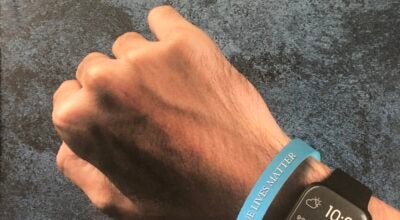Editorial: Child’s suicide an indictment of our culture
Published 12:27 pm Sunday, May 21, 2017
Shameful and shocking — the Cincinnati suicide of an eight-year-old boy named Gabriel Taye two days after being assaulted by a classmate in a school bathroom.
The video of the event is more than disturbing — and not just from the assault, Gabe reaching out to shake hands with a bigger boy who pulls or throws him into a wall, rendering him unconscious as he slumped to the floor. Nor is the most disturbing aspect of this tragedy the school’s handling of the situation, labeled “inexplicable
and inexcusable” in a recent Cincinnati Enquirer editorial.
No, the most disturbing behavior of all is Gabe’s classmates who, for seven long torturous minutes, walked past him going in or out of the bathroom, a few of whom stopped to stare or step over or even poke or prod Gabe with their feet — just to see
if he’d move, I guess. He didn’t.
Those boys who passed by on the other side — yes, I’m reminded of the parable of the Good Samaritan — weren’t ignoring a stranger. They knew Gabe, they liked Gabe, yet they passed by on the other side. And those who did stop to poke him with their foot, getting no response, well, they’ve help write the new parable of the Uncaring Classmate within the larger theme of the Uncaring Culture.
Many readers will strongly disagree with my judging the behavior of eight-year-olds. But I believe that being eight does not exonerate. In terms of suicide, children
of that age may not comprehend the finality and permanence of death. But they surely know pain and being hurt and needing to summon an adult when another child is lying motionless on the floor.
But children do not grow up in vacuum — they learn from adults. Nerve-gas bombs dropped on Syrian children? Another Islamic State beheading video? Mass murder and cremation of Syrian prisoners, starvation in drought-stricken Africa and even in the streets of Venezuela? Not my problem.
Remember Joseph Welch’s penetrating question at a Senate hearing, “Have you no sense of decency, sir?” So I ask today, “Have we no shame?” A dulled sense of shame or common decency goes hand in hand with a weakened importance of personal character and moral compass. At larger levels — family, community, nation, such degrading of group morality and standards leads to lesser pride in a family’s, community’s, or nation’s reputation.
One’s reputation used to be of central importance. Long ago. Here’s a letter that Dan Hosbrook — who lived in Cincinnati and had been blind for years — received on his 80th birthday from his son in Indianapolis. The year was 1865.
“Respected father, In looking over the list of your children, grandchildren, and great grandchildren, I believe there is not a drunkard or a swearer or a vagabond or a beggar in the catalogue, and I now pledge myself that none of my children ever shall be.” Family pride. Moral compass. Pretty old-fashioned, eh?
Dan’s son clearly had pride in his family’s reputation. He would have been shamed had his son walked by another boy lying helpless and motionless. He would have cried had his son been the one who threw Gabe into the wall. Simply put, we are now in an era of nudity, crudity, cussing, road rage, and walking by on the other side, an era when it’s harder to shame people into much of anything. When’s the last time you blushed?
This increased callousness and abrasiveness at the local level is taking place within rapidly lowering national and global standards for human conduct. Genocide — or near-genocide — is occurring in some countries as well as mass starvation and displacement. Will we walk by on the other side? Will America exert moral leadership on the world stage, and will we, as a culture and country and government, better behave ourselves?
And will we help children have strong reasons to live — and to live a life of caring for others? If we can’t have the Ten Commandments in schools, let it be the Golden Rule — do unto others as you would have them do unto you.
James F. Burns is a native of Cincinnati, a descendant of Dan Hosbrook, and a retired professor at the University of Florida. He can be reached at burns@ise.ufl.edu



